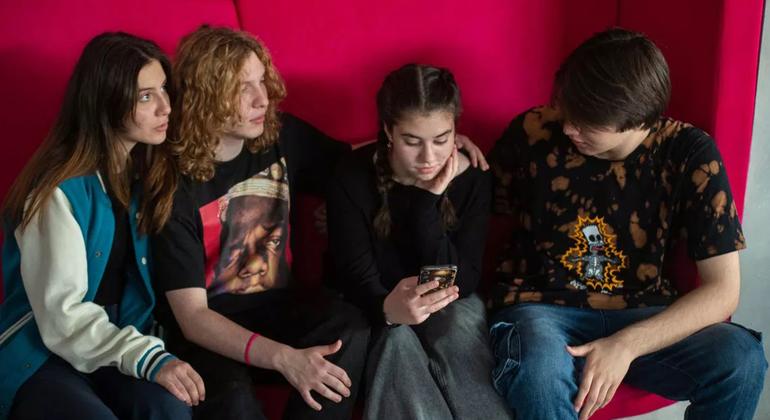In a world where the digital space plays an increasingly significant role in shaping public discourse and influencing societal norms, the issue of regulating online content has become a topic of intense debate. Volker Türk, a prominent figure in the field of human rights, recently made a powerful statement on the importance of addressing hate speech and harmful content online.
“Allowing hate speech and harmful content online has real-world consequences. Regulating this content is not censorship,” Türk wrote in a post on a social media platform. This statement encapsulates the heart of the matter – the need to strike a delicate balance between preserving free expression and preventing the spread of harmful ideologies.
In a longer post on LinkedIn, Türk expanded on his views, emphasizing that efforts to create safe online spaces should not be dismissed as censorship. He pointed out that unregulated online spaces often result in the silencing of marginalized voices, while allowing hatred to flourish can lead to tangible harm in the real world.
The recent decision by Meta chief Mark Zuckerberg to end the company’s fact-checking program in the United States has added fuel to the fire of this ongoing debate. Zuckerberg argued that fact-checkers risked appearing politically biased and that self-regulation had led to excessive censorship. He called for a return to a more open approach to speech on Meta’s platforms, citing a loss of user trust as a key factor in his decision.
However, the International Fact-Checking Network (IFCN) has pushed back against Zuckerberg’s assertions, labeling them as false and warning of the potential harm that could result from a lack of fact-checking measures. The clash between Meta’s new policy and the principles of fact-checking and information integrity highlights the complexity of the issue at hand.
Türk emphasized the immense potential of social media platforms to shape society in positive ways, such as fostering connections between people with diverse viewpoints. However, he also underscored the darker side of social media, noting its capacity to fuel conflict, spread hate, and endanger individuals’ safety.
“At its best, social media is a place where people with divergent views can exchange, if not always agree,” Türk stated. This nuanced perspective acknowledges the dual nature of social media as a tool for both constructive dialogue and destructive behavior.
The UN human rights chief reiterated his commitment to advocating for accountability and governance in the digital space, aligning these efforts with the principles of human rights. By promoting transparency and respect for human dignity online, Türk aims to safeguard public discourse and foster trust among users.
In response to Meta’s recent policy changes, a UN spokesperson in Geneva affirmed the organization’s ongoing efforts to monitor and evaluate the online landscape. Michele Zaccheo, Chief of TV, Radio, and Webcast, stressed the importance of providing fact-based information on social media platforms to counteract the spread of misinformation.
The World Health Organization (WHO) also reaffirmed its dedication to delivering science-based health information across various online platforms. Amidst a growing crisis fueled by digital misinformation, the UN Department of Global Communications (DCG) has taken proactive steps to combat false narratives.
One of these initiatives is the development of a code of conduct for information integrity known as the UN Global Principles for Information Integrity. By establishing clear guidelines for promoting accuracy and transparency in online content, the UN aims to uphold the values of truth and trust in the digital age.
As the debate over online content regulation continues to evolve, it is clear that finding a balance between free expression and responsible oversight remains a complex and ongoing challenge. Through dialogue, collaboration, and a shared commitment to upholding human rights and promoting information integrity, stakeholders can work together to create a safer and more inclusive digital space for all.









